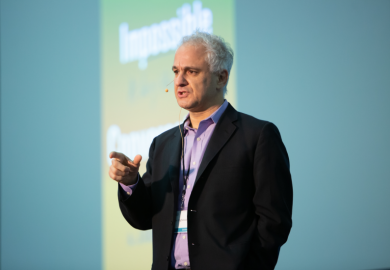Is there really a need for another introductory logic textbook? In his Introduction to Logic, Harry J. Gensler makes a persuasive case that there is.
He begins, after a discussion of logic and validity, with an introduction to the syllogism. While many recent books on contemporary logic do not discuss this at all, it is useful for teaching because students can easily relate to this form of argument. Gensler then introduces propositional logic, together with truth-tables and a method of proof that combines the best features of natural deduction systems and truth trees. Quantificational logic is developed and identity added to arrive at the full system of relational logic.
At this point most introductory books stop but Gensler adds more. He develops modal systems, deontic and imperative logic and a formalised ethical theory. A chapter on metalogic introduces the concepts of soundness and completeness.
There is an account of inductive reasoning - again not common in contemporary textbooks, a chapter on definition and another on fallacies. The book concludes with an appendix on the useful LogiCola software available from Gensler's website or that of the publisher.
The writing is clear and friendly while the scope is wider than that of any competitors I have read. It is a worthwhile addition to the literature.
After a first course in logic, where should a student go next? For those interested in the philosophy of logic an excellent place to turn would be The Blackwell Guide to Philosophical Logic edited by Lou Goble. The book consists of 20 specially written essays by distinguished figures in the field, each with an editor's introduction. It provides a wide-ranging survey of the current state of the subject.
Broadly, its concern is the relationship between natural language and formal symbolism - how the notion of logical consequence is to be explained - which requires investigating classical logic and the challenges and revisions offered by competing systems.
Wilfrid Hodges' essay "Classical logic I: first-order logic", a summary of important results, provides an excellent starting point. There then follows a series of essays discussing the major systems of non-classical logic. Dirk van Dalen's "Intuitionistic logic" presents an early 20th-century challenge, while Edwin Mares and Robert Meyer, in "Relevant logic", discuss a more recently developed area. While intuitionism and relevant logic argue, in effect, that classical logic goes too far in licensing inferences that are not valid, other systems, such as those given in M. J. Cresswell's "Modal logic", say classical logic does not go far enough. Raymond Smullyan's characteristically readable "Gödel's incompleteness theorems" explores the limits of any formal system. Several entries also discuss problems surrounding the formalisation of natural language into logical symbolism.
Each of the essays does a fine job. The issues are difficult but it is clear that contributors have done their best to introduce the area, discuss its problems and provide further references.
Because of the unavoidable use of symbolism, the book will be accessible only to those who already have a first course in logic but many of the essays will be of interest to those with an interest in computer science, artificial intelligence and mathematics as well as philosophy. Professionals will also find it useful for reference. Congratulations to Goble for assembling such a strong team.
While the essays in Goble's collection are all new, the serious student of the philosophy of logic will want to read the original source material.
Dale Jacquette in Philosophy of Logic: An Anthology brings together some of the most important papers in 20th-century philosophy of logic, ranging from Alfred Tarski's 1936 "On the concept of logical consequence" to George Bealer's "Propositions", published in 1998.
Jacquette provides a general introduction as well as one to each of the book's five parts. In the first part, "Classical logic", we have Gödel's examination of "Russell's mathematical logic" and Karl Popper's discussion of the importance of logic in his "What can logic do for philosophy?" The second part, "Truth, Propositions and Meaning", includes a useful reprinting of "Outline of a theory of truth" by Saul Kripke.
Key papers by Charles Parsons and Ruth Barcan Marcus on substitutional quantification are included under the heading "Quantifiers and quantification theory". Part four, "Validity, inference, and entailment", includes the important "The pure calculus of entailment" by Alan Ross Anderson and Nuel Belnap. Finally, David Lewis's ground-breaking "Counterpart theory and quantified modal logic" and David Kaplan's "Quantifying in" are in the section on "Modality, intentionality and propositional attitudes".
Many of these papers are well known - some of them outside the area of philosophy of logic - but Jacquette has also managed to find many less well-known works that are equally worthy of their place.
As a source book for a course on philosophy of logic it is a useful collection. It would also provide supplementary reading for courses on philosophy of mathematics or language.
Although I recommend the editor's selection, I must point out the unacceptable number of typographical errors: the first page of Quine's important "Quantifiers and propositional attitudes" contains three errors that would make it meaningless to a student. It is to be hoped this will be corrected in a second edition.
Francis Moorcroft was formerly lecturer in philosophy, University of Hull.
Philosophy of Logic: An Anthology. First edition
Editor - Dale Jacquette
ISBN - 0 631 21867 X and 21868 8
Publisher - Blackwell
Price - £60.00 and £18.99
Pages - 372
Register to continue
Why register?
- Registration is free and only takes a moment
- Once registered, you can read 3 articles a month
- Sign up for our newsletter
Subscribe
Or subscribe for unlimited access to:
- Unlimited access to news, views, insights & reviews
- Digital editions
- Digital access to THE’s university and college rankings analysis
Already registered or a current subscriber? Login



